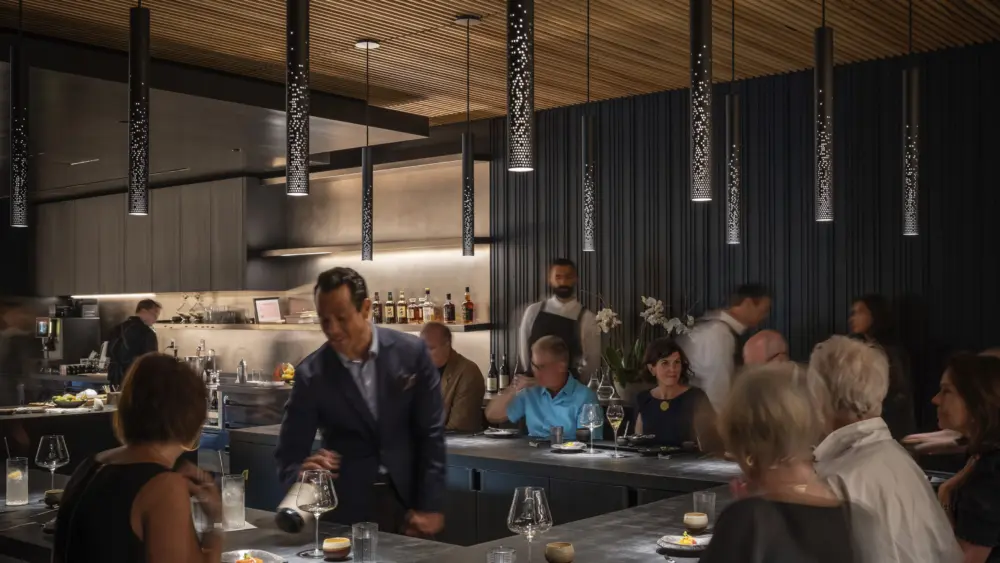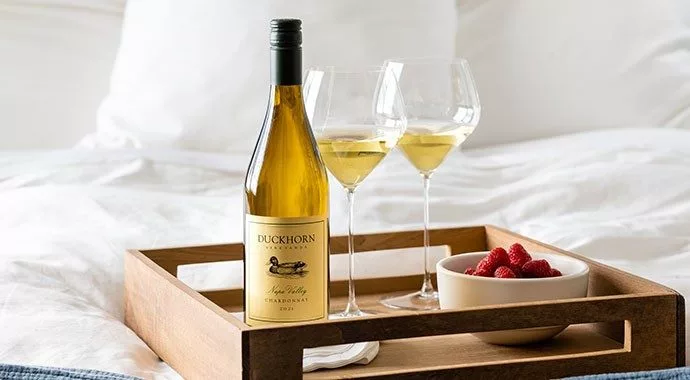Just before I graduated in 1998, my environmental science counselor told me, “You’ll never find a job in the environmental field in Napa, straight out of college.” A few months later, I found myself filling in for a sick receptionist at the Resource Conservation District of Napa County (NCRCD), where I’d previously fulfilled my internship on an erosion control project. I was soon hired by the NCRCD to help its senior soil conservationist and to coordinate the Napa Sustainable Winegrowing Group (NSWG). It was exactly what I wanted to do back then—and it still is, 10 years later.
My title has since changed to NSWG program director, but NSWG hasn’t changed. Since its founding in 1995, NSWG has stayed true to its mission “to identify and promote winegrowing practices that are economically viable, socially responsible and environmentally sound.”
NSWG was started by two men with the vision to promote sustainable agriculture throughout the Napa Valley (and, hopefully, beyond)—Dennis Bowker, then district manager of the Napa County Resource Conservation District, and Mitchell Klug, then director of vineyard operations at Robert Mondavi Vineyards. By its second meeting, NSWG had already attracted five more interested people, most of whom were vineyard managers of other Napa wineries, and Dave Whitmer from the Napa County Agricultural Commissioner’s office. The goal became to write a “sustainable winegrowing cookbook.”
In 1996, the group was awarded grant funding from the California Environmental Protection Agency’s Department of Pesticide Regulation, and NSWG offered its first interactive seminar, with breakout sessions, to give growers an opportunity to discuss and exchange ideas about sustainable farming practices. In 1997, the NSWG published The Integrated Pest Management Field Handbook for Napa County, the valley’s first publication on managing harmful vineyard pests in a sustainable manner. You can view and download the publication from the group’s website at www.nswg.org. In 2000, NSWG offered its first Spanish-language seminar to vineyard workers; it’s an educational tradition that continues to this day.
Since 1996, NSWG has continued to offer interactive seminars to growers. Seminar topics range from the basics of sustainable agriculture to water quality, weed and pest identification and management, soil fertility, erosion control, cover crops, mulching benefits, the social aspects of a sustainable business, and the latest buzz in vineyard management practice, biodynamic farming.
Over the years NSWG has offered exciting seminars on beneficial animals, including in-flight falcon demonstrations, during which we learned about the falconer’s tactics to chase grape-eating starlings out of vineyards. NSWG actively promoted the now widely accepted use of owl boxes and predator perches to invite beneficial barn owls and beneficial predators to aid in the non-chemical fight against vineyard pests. Workshop attendants have also viewed bluebirds, peregrine falcons, bats and barn owls up-close. Others have experienced leading a draft horse on long reins and learned about how one Napa grower still uses his draft horses to till his vineyard and pull wagons full of freshly picked grapes through the vine rows to the press. NSWG also promoted the now popular idea of using sheep to graze vineyard weeds instead of relying on soil- chemicals compacting and tractors.
In 2000, the group published Vineyards in the Watershed: Sustainable Winegrowing in Napa County, which includes numerous case studies of Napa growers—their goals, visions, implementations and, sometimes, failures with sustainable agriculture. NSWG has also published numerous newsletters (they’re available online) and regularly updates its free online library with presentations from its latest seminars.
In 2004, the California Environmental Protection Agency’s Department of Pesticide Regulation awarded NSWG the IPM Innovator Award for its leadership and creativity in advancing the use of reduced-risk programs for pest management in the wine industry. In 2005, Google offered an informational exchange: NSWG members and I were invited to tour the company’s sustainable facility and, in return, we showed them around some sustainably run vineyards and wineries.
One of NSWG’s biggest accomplishments might be that it’s managed to stay apolitical and remain a (very) informal group that simply provides monthly educational meetings and forums to its members. NSWG has monthly two-hour meetings; about one hour is reserved for educational speakers and at least half an hour is dedicated to information exchange among attendees.
All these successes have been made possible with grant money, fundraisers, donations and membership dues.
NSWG feels it has successfully implemented its mission to introduce and promote the idea of sustainable agriculture. Today, it’s not only wineries, but also winery customers that have accepted and are demanding the use of sustainable farming practices.
Since many other agencies have now begun providing sustainable agriculture seminars in both English and Spanish, NSWG has decided to step down from this community leadership role. However, NSWG will continue to provide its annual Spanish seminar for vineyard workers. Most important, NSWG will continue to be the provider of monthly winegrower forums to share, compare and discuss sustainable farming practices.



